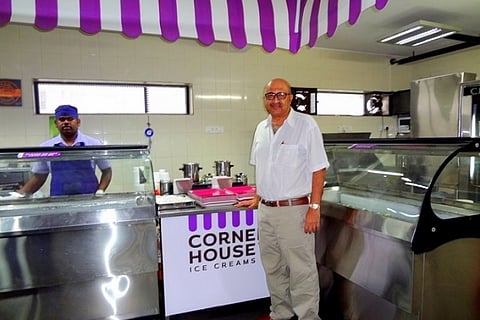

On June 10, Corner House, Bengaluru’s popular ice-cream parlour chain, started a “Bring your own bowl” initiative where customers are advised to bring their own bowls and boxes to the outlets in order to avoid using plastic.
“We want people to become more conscious about how plastic waste can be reduced by being a little more responsible. Most restaurants use disposable utensils, mostly plastic, because there is shortage of water. Though it helps reduce water consumption, it also means more plastic waste is generated. To avoid this, we have started the campaign,” says Narayan Rao, owner of Corner House.
Corner House is keeping a count of the number of people who are bringing their own bowls and boxes. “The only limitation is that people returning from office or those stopping by don’t come prepared with their own bowls. So, we are announcing that Rs 10 of each order placed by a person with their own bowl will go towards charity. On July 10, we will see how the campaign has fared as we are keeping track of the number of people who are bringing their own utensils. Based on that we will begin more awareness campaigns,” Narayan Rao added.
Similarly, Ganesh, owner of By 2 Coffee in Malleshwaram, decided to avoid using plastic while packing food for delivery from his restaurant over a year ago. What began as a campaign to say no to plastic has now become a thriving meal delivery service.
At By 2 Coffee, food is packed in steel lunch boxes and customers can either pick up their orders or have it delivered to them. The boxes are to be returned the following morning.
“The problem is there is no guarantee whether the customers will return the steel boxes. So we started a deposit system,” Ganesh says. Each customer pays a refundable deposit of Rs 3,000 and the money is repaid once the customer stops the service and returns the boxes.
“We had put up a board asking our regular customers to avoid using plastic. So some of them started bringing their own tiffin boxes to pack food. That’s how I got the idea. Now it’s become a full-scale meal delivery system. We have around 150 lunch and dinner boxes being picked up or delivered every day. Each meal costs Rs 90 and contains 15 varieties of food items including salad, sambar, rasam, vegetable curry, rice and so on. Most of our customers are now picking up on the idea and bringing their own boxes,” Ganesh says.
Last week, the city’s civic body – Bruhat Bengaluru Mahanagara Palike – held a consultation meeting with restaurant owners and online food delivery services to switch to reusable packaging for food deliveries.
BBMP Assistant Commissioner for Solid Waste Management and the chairman of the plastic committee Randeep says that the committee has sent a recommendation to the Karnataka government to ban the use of plastic containers for food packaging.
“Currently, restaurant owners say that the logistical difficulties with reusable containers will be an additional hassle. Since plastic containers are not banned by the government, restaurants continue to use them. But if one of the food delivery services like Swiggy takes the initiative, then others will have to follow suit,” he adds.
According to data obtained from the Karnataka State Pollution Control Board, each Bengalurean utilises 16 kg of plastic per month on an average; also, 40% of the waste generated in the city is plastic waste.
Restaurant owners say they will roll out a pilot project similar to the By 2 Coffee initiative in the coming weeks.
“Some restaurants tried to use bagasse containers (made out of sugarcane pulp) and also areca leaves. But these are not viable for food delivery due to leakage issues. We are planning to follow the By 2 Coffee model. Several restaurant owners are keen on doing it and we will begin a pilot project. Based on whether it succeeds or not, we will decide whether it is logistically viable,” says PC Rao, President of Bengaluru Restaurant Owners’ Association.